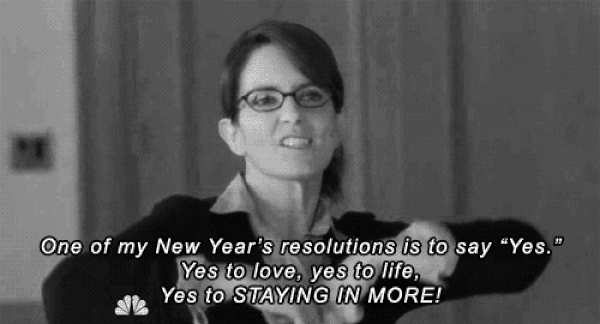The business leader’s complete guide to employee onboarding
January 18, 2023
It’s officially Girl Scout cookie season. Related: It’s officially “the end of any diet-related New Year’s resolutions” season.
Hot off the SMB press this week:
- An entrepreneur’s guide for goal-setting in 2023 (that’s you, ahem).
- What you need to know about crafting the best employee onboarding experience. Like, ever.
But first, here are some headlines that caught our attention this week.
TL; DR
This week's highlight reel
- Prime time. Come January 31, you might see the Amazon Prime badge in some new locations. The massive online retailer is letting partner merchants use the badge as part of its Buy with Prime program, which allows Prime members to buy from other retailers’ sites and still get that oh-so-necessary free, two-day delivery.
- Indeed, but make it Gen Z. Companies are straying from traditional job postings and focusing their attention on a more unique forum: TikTok. Employers are hiring influencers and asking existing employees to post videos about what companies are really like behind-the-scenes to entice new talent. Recruiters, get those dance moves ready.
- Job application: Level 1. Online gaming company Roblox has designed in-platform games to help them screen their job candidates. The gamified tests gauge applicants’ skills beyond ordinary coding assessments. Who else is tempted to apply just to see if the games are fun?
- Ice, ice, baby. From office conference rooms to Zoom meetings to… the tub? Say hello to the newest location for your next meeting: ice baths, where a growing number of people are conducting their day-to-day business. Oh, and don’t forget to give your teammates a courtesy mute when those teeth start chattering.
GOOOAAALLLS!
How entrepreneurs are setting goals in 2023

We’re 18 days into the new year.
So… how’re your New Year’s resolutions going?
If you’re on track and doing swell, then great! But if you’ve already embraced defeat, no judgment — in fact, you’re not alone. Research shows that 80% of New Year’s resolutions fail by the start of February, and only 8% of Americans actually stick to their resolutions all year long.
The reasons?
Lack of self-discipline, no time to actually commit to resolutions, and peer pressure top the list. But, we’d like to offer another answer to why people are so likely to fail in keeping their resolutions: They’re too vague.
The most common resolutions you’ll hear are “exercising,” “eating healthy,” and “losing weight.” But what do any of those resolutions really mean? How are you meant to achieve them? And how do you know when you’ve actually accomplished them?
Let’s solve this problem.
As entrepreneurs and business leaders, we’re familiar with the goal-setting frameworks we use to envision success in our companies (SMART goals, OKRs, etc.). They help us come up with actionable steps we need to take to reach the goals we’ve set for our businesses.
We need to use that same approach to the personal resolutions we set ourselves — and we’ve got a guide to help you and your team do just that.
Step 1: Look back and reflect on last year.
Start by creating a list of all your accomplishments from last year — they can be big, small, life-changing, or mundane. Think about what you were most proud of accomplishing and where you took your biggest risks.
By doing this reflection, you get a chance to think about what you did last year that you can bring into this year — and what you are planning to do differently.
👉 Find the full guide (plus, goal-setting secrets from Daymond John).
ALL ABOARD
Employee onboarding: Everything you need to know

You mean, throwing my new hires a Google Doc and calling it a day isn’t good enough?
In the words of Mr. Randy Jackson: That’s a no from us, dawg.
Hiring top talent is only part of building a productive team. Once you’ve got the right people in place, you still need to take them through your hiring and onboarding process to get them up to speed and positioned to succeed in their new role.
So, how do you know if your onboarding program is ready for that challenge? Well, we’ve got a fully comprehensive guide for that, including checklists and best practices.
Okay, but why is employee onboarding so important?
First impressions matter — your new hires have opinions on your company from the moment they start. Onboarding is the moment when they either jump on board or decide they’ve made a mistake.
Every new hire costs your company roughly $3K and 100 hours for the onboarding process alone. And those numbers don’t include the added hidden costs if your onboarding process fails to bring your new hire fully up to speed.
Plus, having a good onboarding plan helps your business retain employees. Nearly 20% of all turnover happens within the first 45 days of employment. And it’s usually due to an awful employee onboarding experience.
What happens before the onboarding process kicks off?
So, you’ve just hired an exciting new candidate who can bring dedication and skill to your team. Now that they’ve accepted your offer, you’re ready to start onboarding!
But first, there are a few ways you need to prepare before onboarding officially starts. And you can start by ticking these boxes from your employee onboarding checklist.
1. New hire paperwork.
Before a sports team can put their new player in the game, the contracts need to be signed. Your new hire paperwork is your company’s equivalent of those contracts. If you’re located in the U.S., these forms will probably include the following:
- Your company offer letter.
- Employee eligibility verification form (AKA the I-9).
- IRS tax form W-4.
- Direct deposit form.
- Benefits enrollment form.
👉 Check out the rest of the guide.
LOOK MA, WE MADE A PODCAST
This week on Organize Chaos
Time is but a social construct. Except when you’re waiting in the school pickup line. Then it feels excruciatingly legit. Good thing you’ve got Organize Chaos to keep you company and level up your business at the same time (take *that*, time).
That’s because throughout the week, founder and CEO of Trainual, Chris Ronzio, offers up free entrepreneurial and small business leadership advice on the podcast, covering everything from people to processes to productivity — and how to organize your life around it all. The best part? Each bite-sized episode is less than 10 minutes.
Check out some of our most recent episodes:




